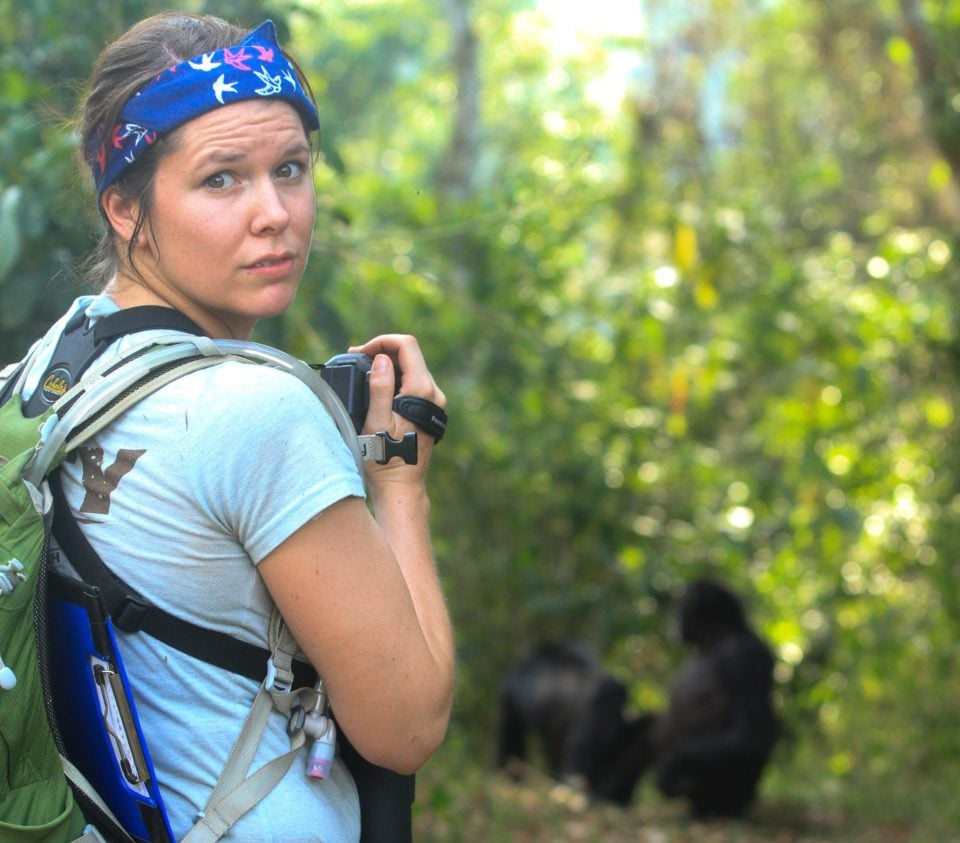Grantee Spotlight
We are pleased to introduce you to the work of our next grantee Kristin Sabbi from the University of New Mexico. She was awarded a Leakey Foundation Research Grant in the spring of 2016 for her project entitled “The ontogeny of sex-typed social behavior among East African chimpanzees.”

Broadly, I am interested in differences between male and female social behavior and how such differences are shaped during development. Like other mammals, humans exhibit sexually differentiated social strategies, including increased aggression among males. Many behavioral sex differences are absent or undetectable at birth, indicating that they must emerge at some point between infancy and puberty. However, in humans, it is difficult to parse out alternative mechanisms that shape sex-typed behavior from the overwhelming force of culturally constructed and reinforced gender norms. Consequently, investigating the roots of sex differences in human behavior by studying humans alone is problematic.
Chimpanzees, our closest evolutionary cousins, may offer insight into the evolution of sexually-differentiated human behavioral strategies because they exhibit broadly similar sex differences to our own, like increased male aggression, but chimpanzees do not actively teach or reinforce sex roles, as we see in humans. Although behavioral sex differences among adult chimpanzees are well documented, little is known about how male and female social strategies develop.
The first aim of my dissertation research is to fill this knowledge-gap by describing social development among the Kanyawara chimpanzees of Kibale National Park, Uganda, over four seasons from 2013 to 2017. The second goal is to examine the role of three mechanisms, social exposure, underlying differences in attention, and androgen hormone production, in shaping behavioral strategies during development. Previous research in humans and non-human primates supports that all three factors impact behavioral sex differences to some extent, however, it is unclear how they work together to shape developing behavioral strategies.
My hope is that this research will set the stage for investigating individual differences in social strategies and eventually, as these young Kanyawara chimpanzees reach adulthood, allow us to investigate relationships between early life conditions, adult social strategies, and reproductive success.


